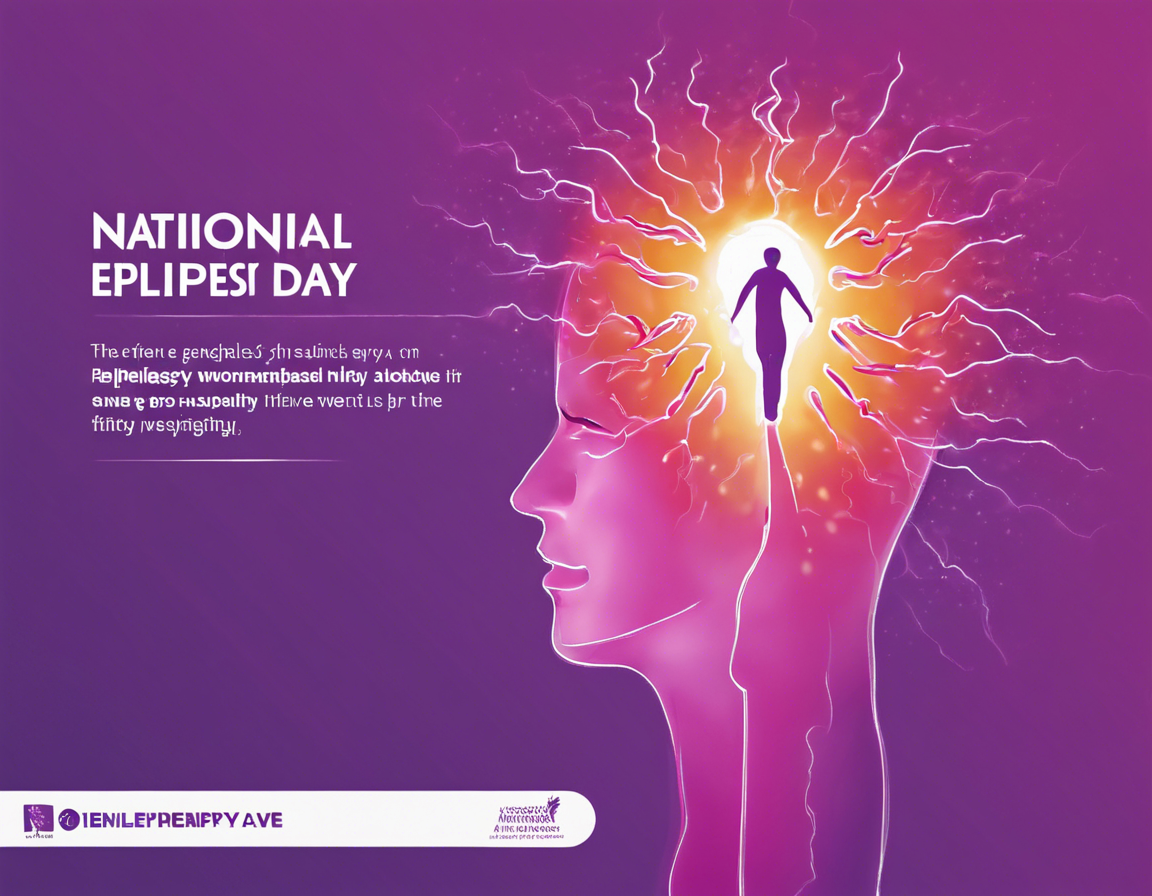National Epilepsy Day is a crucial annual observance dedicated to raising awareness about epilepsy, a common neurological disorder that affects people of all ages worldwide. This day is observed on November 17th each year to educate the public, reduce stigmas, and support individuals living with epilepsy. In 2023, the theme for National Epilepsy Day is “Empowering Individuals, Building Stronger Communities.”
Understanding Epilepsy
Epilepsy is a neurological condition characterized by recurrent seizures, which are caused by sudden bursts of electrical activity in the brain. These abnormal electrical impulses can lead to a wide range of symptoms, including loss of consciousness, convulsions, and sensory disturbances. It is essential to note that epilepsy is not a mental illness or a sign of low intelligence.
Epilepsy Statistics
According to the World Health Organization (WHO), epilepsy is one of the most common neurological diseases globally, affecting approximately 50 million people worldwide. In many low- and middle-income countries, the lack of access to medical care and proper treatment exacerbates the impact of epilepsy on individuals and communities.
National Epilepsy Day Goals
The primary goals of National Epilepsy Day are to:
1. Raise Awareness: Educate the public about epilepsy, its causes, symptoms, and treatment options.
2. Reduce Stigma: Combat misconceptions and stigmas associated with epilepsy to promote acceptance and understanding.
3. Support Individuals: Provide resources, support services, and advocacy for individuals living with epilepsy and their families.
4. Promote Research: Encourage research initiatives to improve diagnosis, treatment, and quality of life for individuals with epilepsy.
Empowering Individuals with Epilepsy
Empowerment plays a vital role in enhancing the quality of life for individuals with epilepsy. Empowering individuals with epilepsy involves:
1. Education: Providing accurate information about epilepsy to help individuals understand their condition and manage it effectively.
2. Self-Advocacy: Encouraging individuals to assert their rights, seek appropriate medical care, and actively participate in their treatment plans.
3. Support Networks: Connecting individuals with epilepsy to support groups, advocacy organizations, and healthcare professionals who can provide assistance and guidance.
4. Skill Development: Offering training and resources to help individuals with epilepsy develop skills to cope with challenges, such as managing stress and seizures.
Building Stronger Communities
Building stronger communities involves creating a supportive and inclusive environment for individuals with epilepsy. This includes:
1. Community Education: Conducting outreach programs, workshops, and events to educate communities about epilepsy and how to support individuals with the condition.
2. Accessibility: Ensuring that individuals with epilepsy have access to healthcare services, medications, and support resources within their communities.
3. Stigma Reduction: Challenging stereotypes and promoting acceptance and inclusion of individuals with epilepsy in schools, workplaces, and social settings.
4. Legal Protections: Advocating for the rights of individuals with epilepsy, including protections against discrimination and barriers to education and employment.
FAQs about Epilepsy
-
What causes epilepsy?
Epilepsy can be caused by various factors, including genetic predisposition, brain trauma, infections, tumors, and developmental disorders. -
Can epilepsy be cured?
While epilepsy cannot be cured, it can often be managed effectively with medication, surgery, or other treatment options. -
What are common seizure triggers?
Common seizure triggers include stress, lack of sleep, flashing lights, loud noises, and certain medications. -
How can I help someone having a seizure?
During a seizure, stay calm, keep the person safe, remove any sharp objects, cushion their head, and stay with them until the seizure ends. -
Is epilepsy contagious?
Epilepsy is not contagious; it is a neurological condition that is not transmitted through contact with individuals with epilepsy. -
Can people with epilepsy lead normal lives?
With proper treatment and support, many people with epilepsy lead full and productive lives, pursuing education, careers, and personal goals. -
Are there special precautions for women with epilepsy during pregnancy?
Women with epilepsy should work closely with their healthcare providers to manage their condition during pregnancy, as some medications can pose risks to the developing fetus. -
Can stress trigger seizures in people with epilepsy?
Stress is a common trigger for seizures in individuals with epilepsy. Managing stress through relaxation techniques, exercise, and counseling can help reduce seizure frequency. -
What support services are available for individuals with epilepsy?
There are various support services available for individuals with epilepsy, including epilepsy clinics, support groups, counseling, and advocacy organizations. -
How can I get involved in raising epilepsy awareness?
You can get involved in raising epilepsy awareness by participating in events, sharing information on social media, volunteering with advocacy organizations, and supporting individuals with epilepsy in your community.
National Epilepsy Day provides a valuable opportunity to educate, advocate, and support individuals living with epilepsy. By promoting empowerment and building stronger communities, we can work towards a more inclusive and understanding society for all individuals affected by epilepsy.
